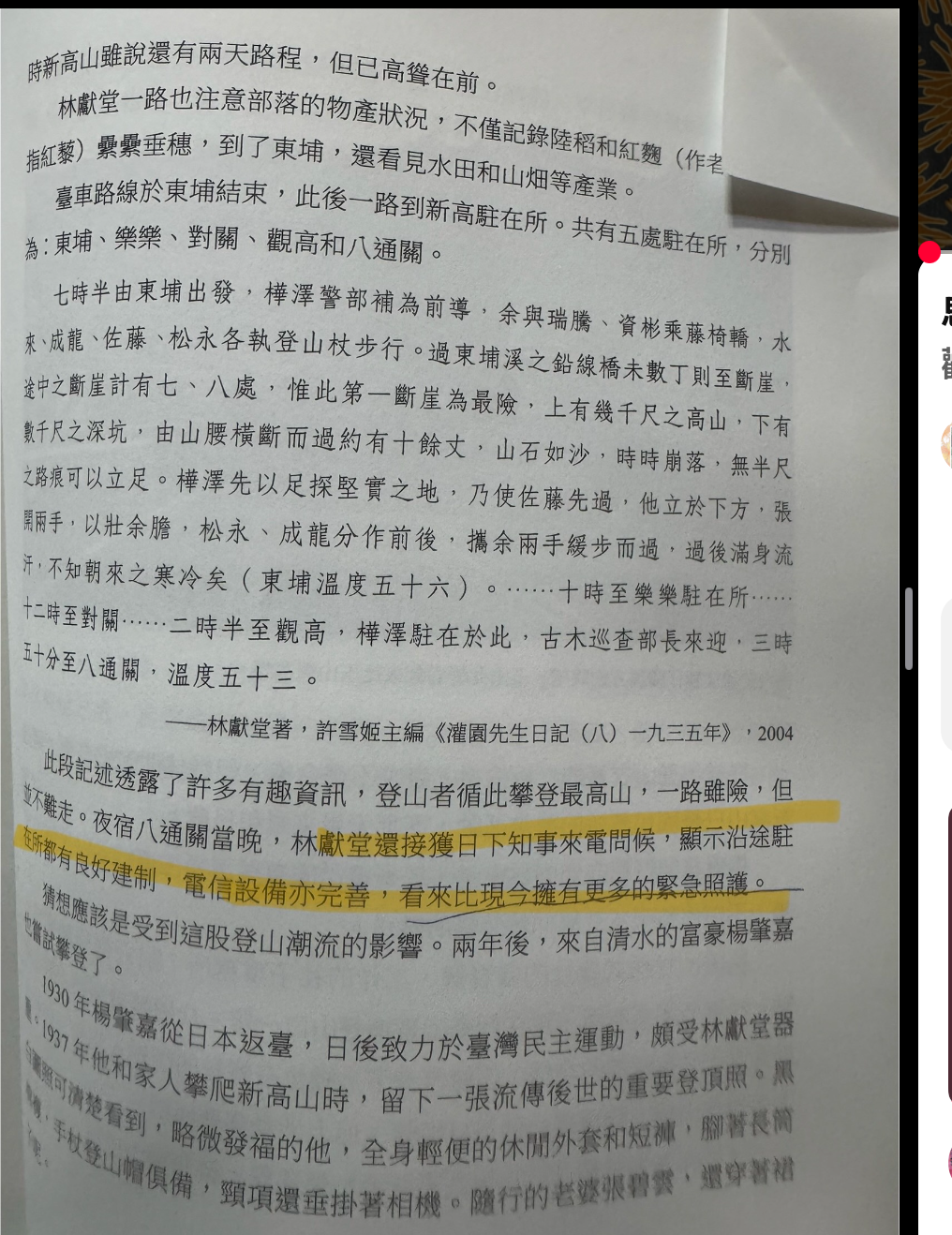歲月3
我現在在看的《流火》這本書,下面的照片文章提到日本時代的一些登山設備。
我上次提的東港陳先生業餘的中醫,他就是228的受難者,
他曾經口述對我說他目睹的228事件,
那其實也是貧富之間的差距,
他說:大陸的部隊到台灣來,
看到水龍頭拔下來,因為他們之前沒有看過。
當時,臺灣很多東西都是他們在大陸鄉下內地沒有看過的,
部隊的管理又不好兵荒馬亂,所以很多不堪入目的事一大堆。
他本身是唸政治大學的,(也可能是開玩笑的政治大學-綠島)
因為228事件有去綠島做過牢,他說這件事的時候他的臉是鐵青的。
陳先生那麼早過世可能跟這件事有關,因為他很會保養,也把他的太太保養得很好,這麼早過世太遺憾,我認為跟他早年的經歷留下的後遺症讓他一直走不出來,
有時候看他生氣,他的臉就是鐵青的,我看見時會想這麼大的脾氣能活多久!
他任職中華電信到快退休的時候已經都是搭公務車在巡視了,
也曾到潮州來拜訪我們,也是一段忘年之交。
我個人認為了解228事件必須從劉銘傳說起,延續到日本對臺灣的殖民讀到大陸、讀到台灣人民心聲,
還有,除了歷史還有生活的狀態,才能把這一切解答出來。
我也看過很多有關於美國大兵的戰爭症候群,美國研究心理學發達,
更真實的表達士兵之間的痛苦跟恐懼及其家屬跟著受傷害的暴力行爲!戰爭沒有誰是贏家吧!
再加上我自己的修行力量,透過有形、無形在解答人性,也研究了好幾年!
依然無解!
The Passage of Time 3
I’m currently reading the book Alpha
Scorpii in Summer: Tadao Kano's Experience Growing Up in Taiwan. The photo
essay beneath it mentions some mountaineering equipment from the Japanese
era.
Mr. Chen from Donggang, whom I mentioned
earlier—an amateur in traditional Chinese medicine—was a victim of the 228
Incident.
He once told me what he witnessed during
that time.
To him, it was also about the gap between
rich and poor.
He said when troops from mainland China
arrived in Taiwan,
they pulled off water faucets because they
had never seen such things before.
At that time, Taiwan had many things
unfamiliar to those from rural mainland China.
The military was poorly managed, and the
chaos led to countless shameful acts.
He said he studied at National Chengchi
University (or he may have been joking, referring to the “University of
Politics”—meaning Green Island prison).
Because of the 228 Incident, he was
imprisoned on Green Island.
When he talked about this, his face turned
pale and grim.
His early death may have been related to
these experiences.
He took great care of his health, and his
wife’s too. It was a real loss.
I believe the trauma from his youth never
left him.
Sometimes when he got angry, his face
turned dark and cold. Whenever I saw him like that, I couldn’t help but wonder
how long someone with such intense emotions could
live.
He worked at Chunghwa Telecom until nearly
retirement,
and by then, he was already being
chauffeured around in a company car on inspection rounds.
He even visited us in Chaozhou once—an
unforgettable friendship across generations.
To truly understand the 228 Incident, I
believe we must start with Liu Mingchuan,
then trace through Japan’s colonization of
Taiwan,
and listen to voices from both the mainland
and Taiwan.
Beyond just history, it is the lived
reality—the everyday conditions of the people—that can help us piece together
the full picture.
I’ve read many accounts of American
soldiers suffering from war-related trauma.
Psychology is well-developed in the U.S.,
and their pain, fear, and violent behaviors that hurt even their families are
well documented.
There are no true winners in war.
On top of that, with the strength I’ve
gained from my own spiritual cultivation,
I try to explore human nature—both the
visible and invisible—and have studied it for many years.
And yet, it remains unsolved.
Banji

沒有留言:
張貼留言